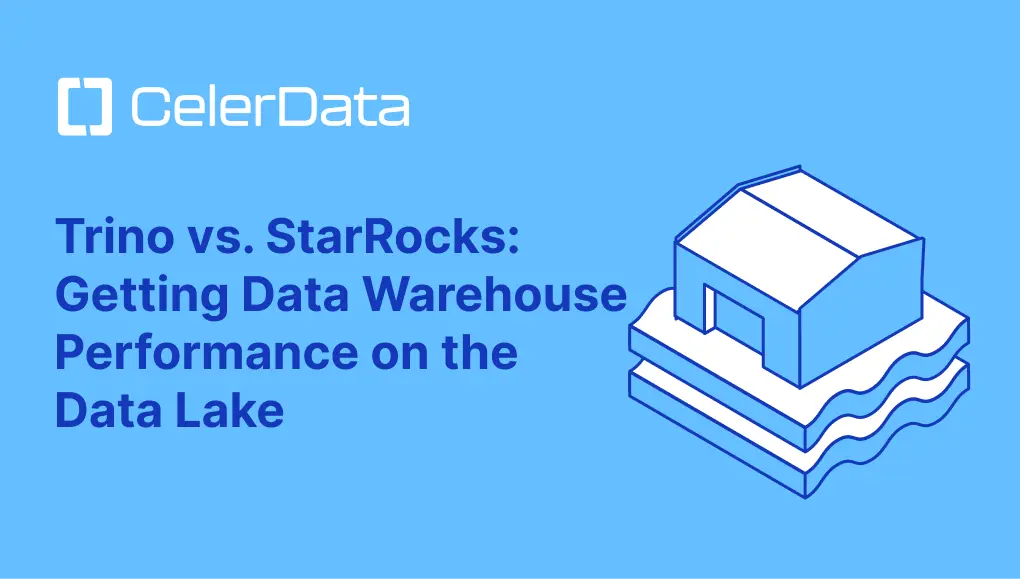
Data Storage

Join StarRocks Community on Slack
Connect on SlackData storage plays a crucial role in the digital age. The world generated approximately 120 zettabytes of data in 2023. This figure will reach 181 zettabytes by 2025. Data storage ensures that information remains accessible and secure. Businesses rely on effective storage solutions to manage this vast amount of data. The market for data storage will grow to $12.9 billion by 2030. This growth highlights the increasing importance of data storage. Data storage makes it possible to handle the surge in digital data efficiently. Understanding data storage is essential for navigating the modern digital landscape.
Historical Evolution of Data Storage
Early Methods of Data Storage
Physical Storage Media
Traditional data storage began with physical media. Magnetic tape emerged in the late 1940s. This innovation marked a significant shift in technology. Magnetic tape became a key component of the computer revolution. The introduction of floppy disks followed. Floppy disks became the gold standard in home and business computing. These disks offered portability and ease of use.
Transition to Digital Storage
The 1960s saw magnetic storage replace punch cards. Magnetic storage became the primary means for data storage. Compact discs arrived next. These discs radically transformed computing by providing digital audio recordings. USB flash drives entered the scene later. USB flash drives offered faster speeds and higher data capacity. These advancements paved the way for modern solutions.
Modern Data Storage Solutions
Cloud Storage
Cloud Storage represents a major leap forward. Cloud Storage allows users to store vast amounts of data online. This method provides easy access from anywhere with an internet connection. Businesses benefit from Cloud Storage by reducing physical storage needs. Cloud Storage also offers enhanced security features. Users can retrieve data quickly and efficiently.
Hybrid Storage Solutions
Hybrid storage solutions combine on-premises and Cloud Storage. This approach offers flexibility and scalability. Businesses can store sensitive data locally. Less critical data can reside in the cloud. Hybrid solutions adapt to changing storage needs. Companies enjoy the benefits of both local and Cloud Storage. This strategy ensures data continuity and security.
Types of Data Storage
Understanding the various types of data storage is crucial for managing digital information effectively. Different storage solutions cater to different needs, whether for speed, capacity, or cost-efficiency.
Primary Storage
Primary storage holds data temporarily for quick access by the computer's processor. This storage type is essential for running applications and processing tasks efficiently.
RAM
Random Access Memory (RAM) serves as a computer's short-term memory. RAM stores data that the CPU needs to access quickly. More RAM allows a computer to handle more tasks simultaneously. RAM is volatile, meaning data disappears when the power goes off.
Cache
Cache memory speeds up data access for frequently used information. Cache is smaller and faster than RAM. The CPU uses cache to reduce the time needed to access data from the main memory. Cache plays a vital role in enhancing system performance.
Secondary Storage
Secondary storage provides long-term data retention. This storage type is non-volatile, meaning data remains intact even when the power is off.
Hard Disk Drives (HDD)
Hard Disk Drives (HDDs) use magnetic disks to store data. HDDs offer large storage capacities at a lower cost per gigabyte. HDDs have moving parts, which makes them less durable than SSDs. HDDs are suitable for storing large amounts of data that do not require frequent access.
Solid State Drives (SSD)
Solid State Drives (SSDs) use flash memory for data storage. SSDs provide faster data access and greater durability compared to HDDs. SSDs have no moving parts, which enhances their reliability. The cost per gigabyte for SSDs tends to be higher, but the performance benefits often justify the expense.
Tertiary and Offline Storage
Tertiary and offline storage solutions serve as backup options. These storage types are ideal for archiving data that does not need immediate access.
Optical Discs
Optical Discs include CDs, DVDs, and Blu-ray discs. Optical discs store data using laser technology. These discs are portable and can hold a moderate amount of data. Optical discs are useful for distributing media and creating backups.
Magnetic Tape
Magnetic Tape offers a cost-effective solution for long-term data storage. Magnetic tape is often used for archiving and backup purposes. The format provides high storage capacity at a low cost. Magnetic tape is less accessible than other storage types, making it suitable for data that requires infrequent retrieval.
Types of Data Storage Devices
Understanding the variety of Data Storage Devices is crucial for selecting the right solution for personal or business needs. Numerous data storage devices provide different capabilities and benefits, tailored to specific requirements.
Personal Storage Devices
Personal storage devices offer convenient and portable solutions for individual users. These devices are ideal for storing personal files, photos, and documents.
USB Flash Drives
USB Flash Drives serve as a popular choice for personal storage. Flash storage technology allows these drives to store data efficiently. Users can easily transfer files between computers using USB flash drives. The compact size of these drives makes them highly portable. Flash drives offer a cost-effective option for temporary data storage.
External Hard Drives
External Hard Drives provide larger storage capacities compared to USB flash drives. These drives connect to computers via USB or other interfaces. External hard drives offer reliable storage for backing up important data. Users can store large files, such as videos and software applications, on these devices. External hard drives serve as an excellent choice for long-term data storage.
Enterprise Storage Solutions
Enterprise storage solutions cater to the high-capacity storage requirements of businesses. These solutions ensure dependable archiving, data backup, and recovery capabilities.
Network Attached Storage (NAS)
Network Attached Storage (NAS) solutions allow multiple devices to share storage over a network. NAS solutions enhance collaboration by providing centralized data access. Businesses benefit from NAS solutions by improving data accessibility and security. NAS solutions support various software applications, making them versatile for business environments. NAS solutions offer scalability to accommodate growing storage needs.
Storage Area Network (SAN)
Storage Area Network (SAN) provides a high-performance storage solution for enterprises. SAN solutions connect storage devices to servers through a dedicated network. Businesses use SAN solutions for critical applications requiring fast data access. SAN solutions support storage virtualization, enhancing flexibility and efficiency. SAN solutions offer robust data protection and disaster recovery features.
Benefits of Efficient Data Storage
Efficient Data Storage provides numerous advantages for both individuals and businesses. Understanding these benefits helps you make informed decisions about your data management strategies. The following sections explore the key benefits of efficient data storage.
Data Security
Data security remains a top priority in today's digital world. Protecting sensitive information from unauthorized access is essential for maintaining trust and compliance.
Encryption
Encryption serves as a powerful tool for securing data. This process converts readable data into a coded format, making it inaccessible to unauthorized users. Many organizations implement encryption to protect sensitive information. This practice ensures that only authorized parties can access the data.
Access Control
Access control mechanisms further enhance data security. These systems regulate who can view or modify data within a storage environment. Strong password protection and special permissions are common access control measures. Implementing these measures reduces the risk of data breaches.
Data Accessibility
Efficient Data Storage also enhances data accessibility. Quick and easy access to information is crucial for productivity and collaboration.
Remote Access
Remote access allows users to retrieve data from anywhere with an internet connection. This capability supports flexible work arrangements and improves efficiency. Cloud storage solutions often provide remote access features. These features ensure that users can access important files whenever needed.
Data Sharing
Data sharing facilitates collaboration among team members. Efficient storage solutions enable seamless data sharing across devices and locations. Network Attached Storage (NAS) systems often support data sharing capabilities. These systems improve teamwork by providing centralized access to shared resources.
Efficient Data Storage offers significant benefits, including enhanced security and accessibility. By understanding these advantages, you can optimize your data storage strategies to meet your needs.
Future of Data Storage
The Future of Data Storage promises exciting advancements. Emerging technologies and sustainable practices will shape how you store and manage data. Understanding these trends helps you prepare for upcoming changes in the digital landscape.
Emerging Technologies
Emerging technologies offer innovative solutions for data storage. These advancements aim to increase capacity and efficiency.
Quantum Storage
Quantum storage represents a groundbreaking development in the field. Quantum bits, or qubits, allow for storing vast amounts of information. This technology uses the principles of quantum mechanics. Quantum storage offers potential for unprecedented speed and security. Businesses can benefit from faster data processing and enhanced protection.
DNA Data Storage
DNA data storage explores encoding digital data into DNA sequences. DNA molecules provide a high-density storage medium. This approach allows for compact and long-term data retention. DNA storage requires less energy compared to traditional methods. A 2023 study highlighted the efficiency of DNA storage at normal temperatures. DNA molecules are biodegradable, making them an eco-friendly option.
Sustainability in Data Storage
Sustainability plays a crucial role in the Future of Data Storage. Energy-efficient solutions and eco-friendly materials contribute to reducing environmental impact.
Energy-efficient Solutions
Energy-efficient solutions focus on minimizing power consumption. Modern storage systems aim to use less energy while maintaining performance. Businesses can reduce operational costs by adopting energy-efficient technologies. These solutions support sustainability goals and improve overall efficiency.
Eco-friendly Materials
Eco-friendly materials enhance the sustainability of storage solutions. Manufacturers explore using biodegradable and recyclable materials. These materials reduce waste and environmental harm. Businesses can choose eco-friendly options to align with green initiatives. Sustainable practices ensure a positive impact on the planet.
The Future of Data Storage involves embracing new technologies and sustainable practices. By staying informed about these trends, you can make better decisions for your data management needs.
Reflective Considerations for Data Storage Solutions
Reflecting on your data storage needs is crucial for making informed decisions. The right solution ensures that you can efficiently manage and access your information. Evaluating personal needs and choosing the appropriate storage option will help you navigate the digital landscape effectively.
Evaluating Personal Needs
Understanding your specific requirements is the first step in selecting a storage solution. Consider the following factors to determine what suits you best.
Data Volume
Data volume plays a significant role in choosing a storage solution. Large files and backups might require substantial capacity. Hard Disk Drives (HDDs) provide ample space for extensive data collections. Smaller data volumes may benefit from Solid State Drives (SSDs) or USB flash drives. These options offer faster access and portability. Assessing your data volume helps you select the most suitable storage device.
Budget Constraints
Budget constraints influence your choice of storage solutions. High-capacity options like HDDs are often more cost-effective. SSDs, while more expensive, provide superior performance. USB flash drives offer an affordable solution for temporary storage needs. Balancing your budget with your storage requirements ensures a practical decision. Evaluate your financial limits to find a solution that meets your needs without overspending.
Choosing the Right Solution
Selecting the right storage solution involves considering key attributes. Scalability and reliability are vital aspects that affect your decision-making process.
Scalability
Scalability determines how well a storage solution can grow with your needs. Businesses often require scalable options to accommodate increasing data volumes. Network Attached Storage (NAS) systems offer flexibility for expanding storage capacity. Personal users may opt for external hard drives that allow easy upgrades. Ensuring your storage solution can scale prevents future limitations. Consider your long-term data growth when evaluating scalability.
Reliability
Reliability ensures that your data remains safe and accessible. Storage solutions must provide dependable performance to protect valuable information. HDDs offer robust storage for non-critical data. SSDs deliver high reliability for frequently accessed files. NAS systems enhance data security through centralized management. Reliable storage solutions safeguard against data loss and ensure consistent access. Prioritize reliability to maintain trust in your data management strategy.



.jpg)